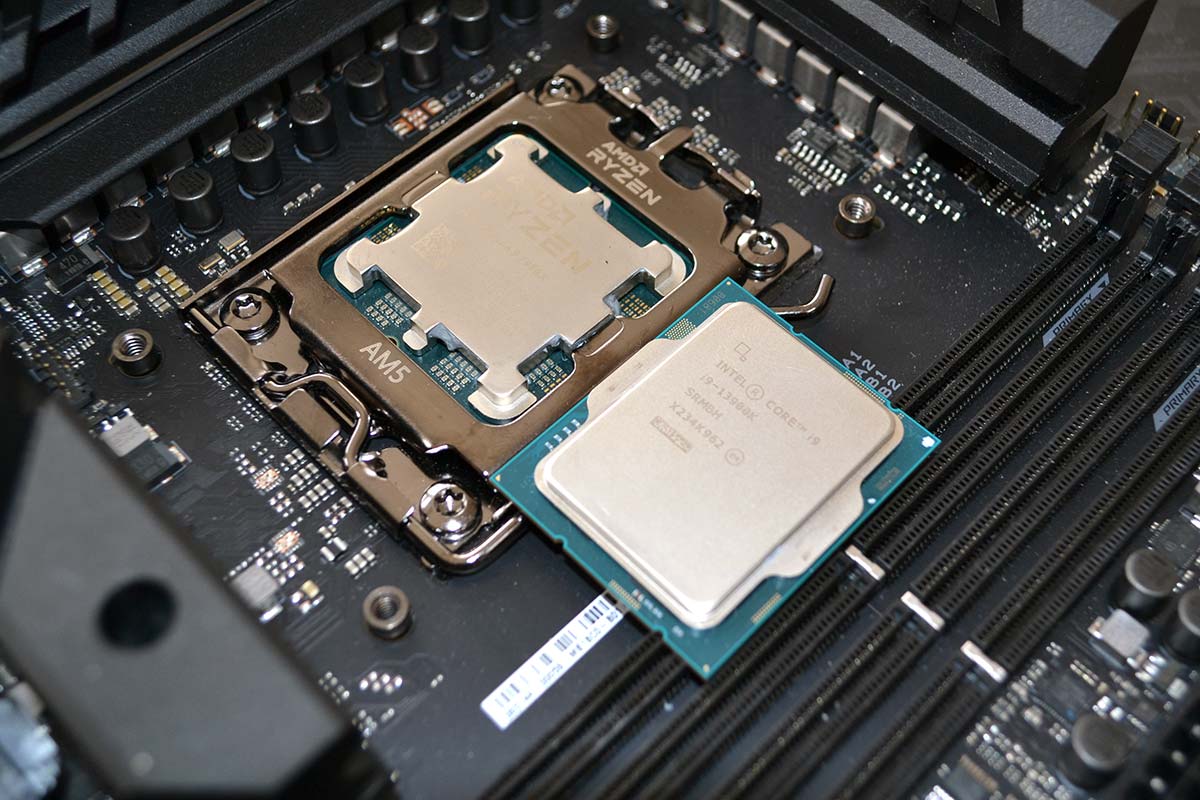- Joined
- Feb 20, 2019
- Messages
- 9,314 (4.10/day)
| System Name | Bragging Rights |
|---|---|
| Processor | Atom Z3735F 1.33GHz |
| Motherboard | It has no markings but it's green |
| Cooling | No, it's a 2.2W processor |
| Memory | 2GB DDR3L-1333 |
| Video Card(s) | Gen7 Intel HD (4EU @ 311MHz) |
| Storage | 32GB eMMC and 128GB Sandisk Extreme U3 |
| Display(s) | 10" IPS 1280x800 60Hz |
| Case | Veddha T2 |
| Audio Device(s) | Apparently, yes |
| Power Supply | Samsung 18W 5V fast-charger |
| Mouse | MX Anywhere 2 |
| Keyboard | Logitech MX Keys (not Cherry MX at all) |
| VR HMD | Samsung Oddyssey, not that I'd plug it into this though.... |
| Software | W10 21H1, barely |
| Benchmark Scores | I once clocked a Celeron-300A to 564MHz on an Abit BE6 and it scored over 9000. |
I can't guarantee any future predictions, but Intel have surged back to parity with AMD because their troubled 10nm process finally ironed out enough kinks to make a viable product, and that product is only viable because they've found a way to make it eat 300W+ without catching fire. Performance/Watt matters immensely in every single segment except the high-end, liquid-cooled, DIY-enthusiast segment, which is an absolutely miniscule segment in terms of units sold. What matters for efficiency is process node, since I believe Intel's chip design engineers to be of a high calibre. From a process node perspective, Intel's last 3 years have been a complete shit-show:When Zen 4 released, excepting the 7950X, all I saw was parity with Alder Lake but at a higher price.
I think a lot of folks intuitively knew this was coming. AMD needed to do a 2-gen type leapfrog of Intel, since AL was already demonstrably superior to Zen 3. They didn't do that, so naturally now they are clearly behind.
With AMD's 2 year release cycle, this is likely to just get worse. This time next year we'll have Meteor Lake, and AMD will still be on Zen 4. In 2024 Intel will release Arrow Lake, and that will be what Zen 5 goes up against.
I find it highly unlikely, that AMD would be competitive against an Intel part 2 generations in the future with Zen 5 using the same socket and so on, when they are effectively most of a generation behind right now. It's a total repeat of the late 2000s and early 2010s.
Their 10nm first failed to launch at 8th-Gen, with only some completely defective mobile i3's actually making it out of the foundry. It took until Alder Lake to be viable for desktop and server, and rebranding it intel 7 isn't progress, it's just a new marketing name. I am taking a look at that roadmap above and seeing that right now, Intel are transitioning to 4nm, EUV, and a new Foveros packaging ALL AT ONCE. Just bear in mind they've spend FOUR GENERATIONS floundering around trying to get a single jump from 14nm to
Additionally, Intel aren't ahead of AMD in IPC, it's just that they clock their CPUs to the moon at 2.5x the power consumption. Intel are playing catch-up with AMD in terms of cache, interconnect, IMC latency, chiplet technology, MCM scaling from Ryzen 5 to 8-die EPYC server CPUs. 14th Gen will have many of the things (for the first time) that AMD have had for nearly five years now. That's five years of field-tested experience AMD have that Intel don't, and a lot of that is down to manufacturing process, not design. Again, I don't think I need to iterate how poor Intel's manufacturing and process node track record has been for the last half-decade, and I don't have any real reason to expect a massive reversal of competence out of the blue...
Going back to Ryzen 7000, sure - it may only be as good as Alder Lake, but it's coolable, efficient, and you know that a PCIe 5.0, DDR5 AM5 motherboard will be good for Ryzen 8000, 9000, 10000 and possibly beyond. Socket 1700 is already a dead end, to be replaced next generation.
Last edited:













